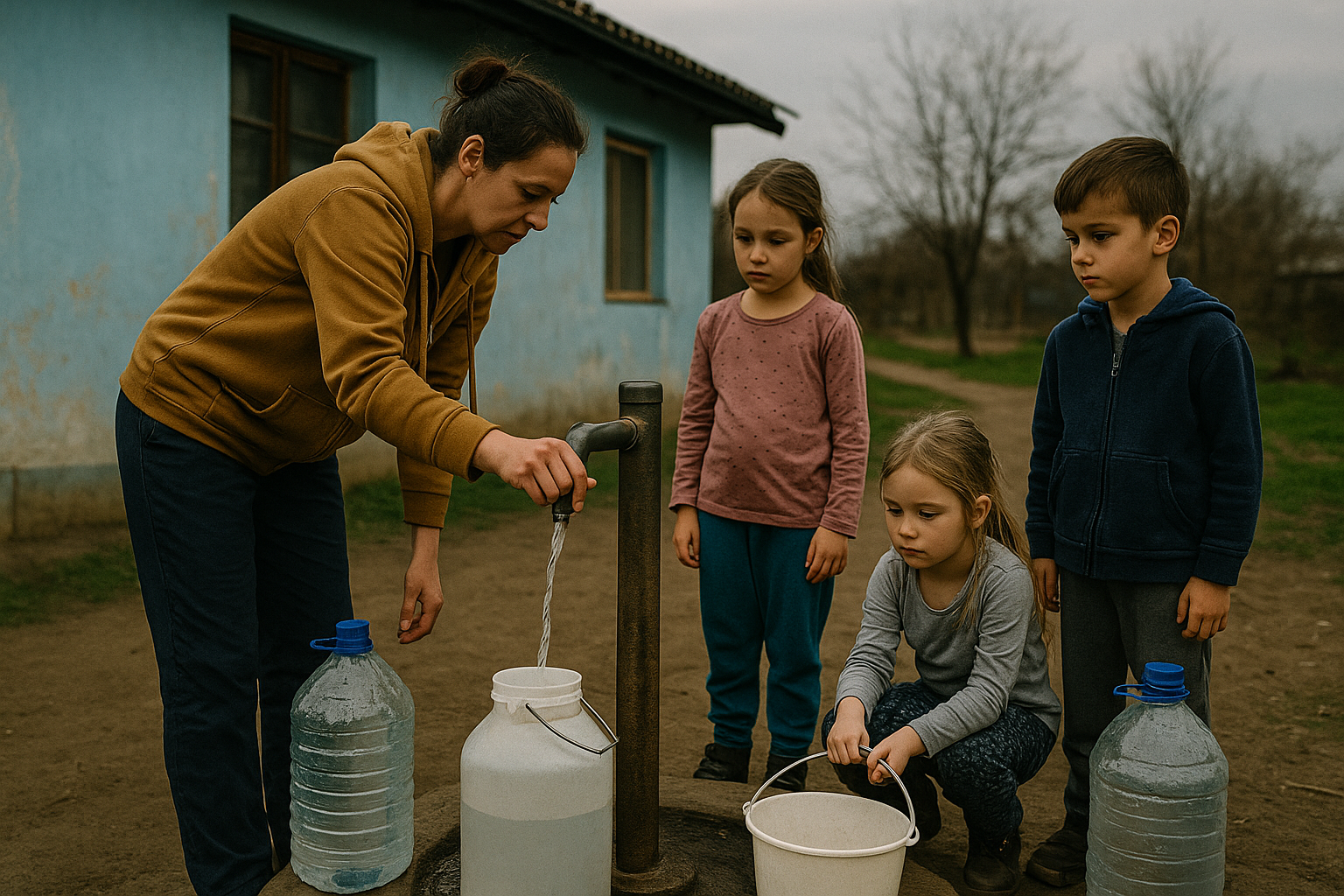WHO Report Warns Europe to Act Now on Equal Access to Safe and Affordable Water
The WHO’s “Water for All” report urges European countries to guarantee safe, affordable drinking water for everyone, calling it a fundamental human right essential for health, equality, and dignity. It highlights new EU laws, data tools, and country examples driving progress toward fair and universal water access.

The World Health Organization (WHO) Regional Office for Europe, together with the United Nations Economic Commission for Europe (UNECE) and Germany’s Environment Agency (Umweltbundesamt), has released a powerful new report titled “Water for All: Embedding Equity in Drinking-Water Policies.” Supported by research from Hungary’s National Centre for Public Health and Pharmacy, the policy brief urges European governments to guarantee that every person has access to safe, affordable, and reliable drinking water. It describes water not as a privilege but as a fundamental human right, essential for health, dignity, and economic well-being.
Closing the Gap Between the Privileged and the Underserved
Across Europe, millions still lack access to safe drinking water because of where they live, their income, or their social background. The WHO report stresses that this inequality violates basic human rights and undermines public health. Safe drinking water, it says, is the foundation for a strong society, improving education outcomes, boosting productivity, and reducing disease. Every dollar invested in small-scale water systems can generate about two dollars in return, even in high-income countries. The report points to the Protocol on Water and Health, which requires governments to set national goals to close access gaps. Countries like Belarus, Czechia, and Moldova have already made progress, from expanding rural water networks to creating solidarity funds for vulnerable groups.
The EU’s Turning Point: From Policy to Action
One of the most significant developments in recent years is the revision of the European Union’s Drinking Water Directive (DWD) in 2020, a reform inspired by the Right2Water citizens’ initiative signed by 1.68 million Europeans. This movement demanded that water remain a public service, not a market commodity. The updated directive requires EU countries to identify people who lack clean water, find out why, and take concrete steps to improve access, especially for marginalized communities such as refugees, homeless people, and minority groups. From 2029, member states will report regularly to the European Commission on their progress, including data on access and measures like installing public drinking fountains. Promoting tap water is also a health goal, helping to reduce sugary drink consumption and provide safe hydration during extreme heat.
To help countries meet these goals, the WHO and UNECE have produced a suite of practical tools. Among them is the Equitable Access Scorecard 2.0, launched in 2024, which helps governments assess disparities and plan solutions. These tools, together with clear EU regulations, give Europe its strongest framework yet for making equitable access to water a reality.
Data: The Missing Piece in the Water Puzzle
While political will is growing, the report warns that many countries still lack reliable data. Without clear numbers, it’s impossible to see who is being left behind. Only 15 of 27 countries under the Protocol had completed or started assessments of equitable water access by 2022. Rural communities remain at a disadvantage compared to cities, and economic inequality deepens the problem. In some countries, the poorest households are more than 20 percent less likely than the richest to have improved drinking-water services.
Eurostat data reveal another troubling pattern: poorer families spend a much larger share of their income on water and basic services than wealthier ones. The WHO argues that affordability must be central to water policy, calling for fair tariffs and support systems to prevent people from losing access simply because they cannot pay.
Country Success Stories Offer Hope
The brief offers inspiring examples of progress from across the region. In Croatia, water trucks and carrier ships deliver drinking water to small rural and island communities, while new infrastructure projects aim to reduce the urban–rural divide. Hungary offers free water testing for vulnerable families and deferred payments for low-income households. Germany has made drinking water in public places a legal obligation under its 2023 Federal Water Act and has launched campaigns to raise awareness about tap water during major events like the 2024 UEFA football championship.
Belgium’s Flanders region has created a social water tariff that cuts bills by 80 percent for low-income households and includes strict safeguards against disconnections. Portugal ensures that public drinking fountains are safe through a national monitoring system and promotes tap water as a sustainable choice. Armenia has amended its Water Code to define vulnerable groups and enshrine equitable access in law, while France has gone further by embedding the right to water in national legislation, requiring local authorities to identify and assist people with little or no access by 2027.
Building a Fairer Future, Drop by Drop
The WHO report concludes with a call for stronger monitoring systems, more investment in resilient water infrastructure, and closer cooperation between sectors such as health, education, and social welfare. Governments are urged to use tools like the Equitable Access Scorecard to identify underserved areas and plan targeted interventions. The brief also stresses the importance of community involvement; local groups, schools, and health workers can all play key roles in promoting water safety and hygiene education.
- FIRST PUBLISHED IN:
- Devdiscourse
ALSO READ
Access to Medicines Still Uneven in South-East Asia, Finds WHO Regional Report
Caring under pressure: WHO reveals mental toll on Europe’s doctors and nurses
The Man Who 'Died' to Escape Justice: Virender Vimal's Extraordinary Evasion
President Trump's peace plan will bring relief to hostages, civilian population in Gaza and whole world: UK PM Starmer.
J-K statehood: Solicitor General says there are some people who are spreading specific narrative and presenting grim picture of J-K.










